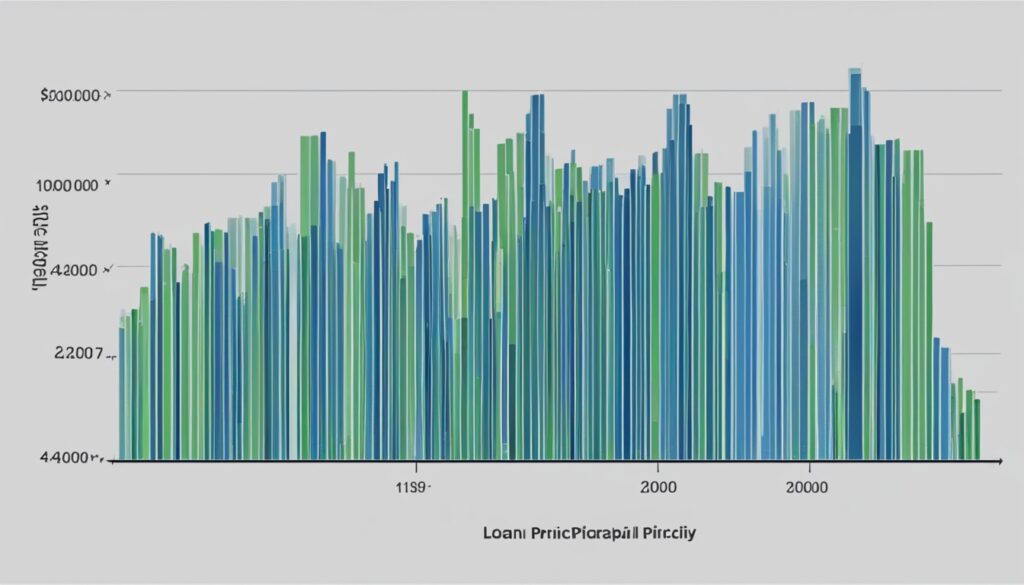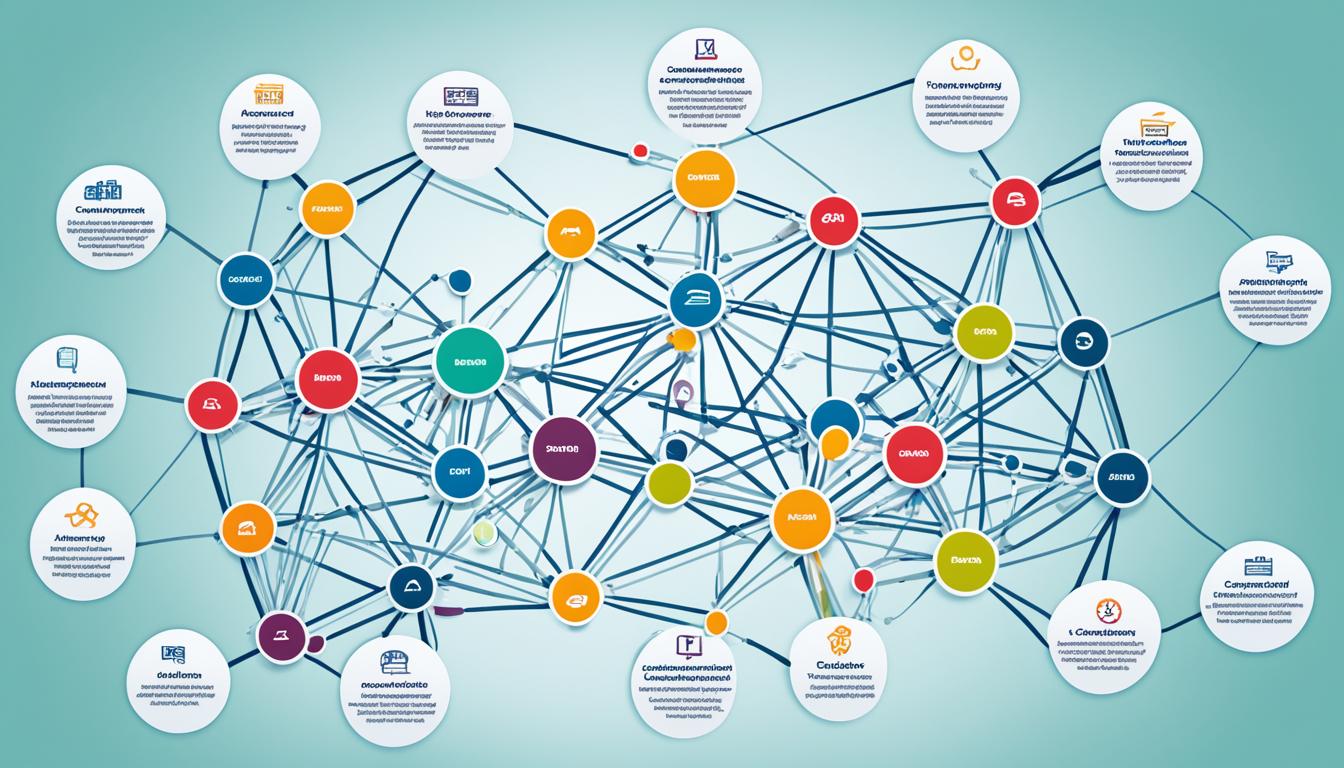“The difference between winning and losing is most often not quitting.” – Walt Disney
This quote from Walt Disney highlights the key to success: never giving up. It’s a great start to our talk about loan structuring. Getting your loan structured right is key to financial stability and growth. Think about what you can afford, how you’ll pay back, and the interest rates. Doing this can save you money, ease your stress, and set you up for a better financial future.
Key Takeaways
- Structuring your loan correctly is essential for achieving long-term financial success.
- Carefully evaluating your financial situation and loan requirements can help you secure the best possible terms.
- Understanding the impact of interest rates, repayment schedules, and collateral requirements can save you money and reduce stress.
- Exploring debt consolidation strategies and customized repayment plans can provide more favorable terms and improve your credit score.
- Developing a comprehensive understanding of loan origination and amortization schedules can help you make informed decisions.
Understanding Loan Affordability and Repayment
Before you apply for a loan, it’s key to check your finances well. Look at your income, debts, and budget to see what you can handle. This helps you pick a loan amount and terms that fit your budget. It also makes sure the loan won’t strain your finances.
Evaluating Your Financial Situation
Start by listing your monthly income from all sources. This includes your main job, side hustles, or any steady income. Then, list your monthly expenses like rent, utilities, car payments, and credit card bills. This shows how much you can set aside for loan payments.
Determining Your Loan Requirements
With a clear view of your finances, figure out what you need from a loan. Think about the loan amount, interest rate, and how long you’ll pay it back. A good credit score might get you better loan terms, like lower payments. Or, if you’re paying off debts, a consolidation loan could make things easier and cheaper.
| Loan Factors | Considerations |
|---|---|
| Loan Amount | Based on your financial assessment, determine the optimal loan amount that aligns with your budget and repayment capacity. |
| Interest Rate | Research and compare interest rates from different lenders to find the most competitive option that fits your credit profile. |
| Repayment Period | Choose a repayment period that balances affordability and the overall cost of the loan, considering your long-term financial goals. |
By looking at your finances and what you need from a loan, you can make sure the loan fits you well. This makes it easier to manage and helps you reach your financial goals.
Structuring Your Loan Correctly
Getting the right loan means setting it up to save you money and match your ability to pay back. You need to look at the amortization schedule, interest rates, and loan terms. Knowing about collateral requirements and their effect on your credit score is also key. This helps you make smart choices and avoid problems.
Creating the right amortization schedule is very important. It shows when and how you’ll pay back the loan, including both the principal and interest. By looking at different schedules, you can pick one that fits your budget and goals.
Interest rates play a big role in your loan setup. They change based on your credit score, the loan size, and the lender’s rules. By comparing rates from different lenders, you can get the best deal and pay less over time.
| Loan Term | Interest Rate | Monthly Payment | Total Interest Paid |
|---|---|---|---|
| 5 years | 6.5% | $1,000 | $3,000 |
| 10 years | 7.0% | $600 | $7,200 |
| 15 years | 7.5% | $450 | $12,000 |
It’s also vital to know about the collateral requirements for your loan. Collateral, like assets you offer as security, affects your credit score and loan terms. By looking at these requirements, you can make sure your loan fits your finances and goals.
“Structuring your loan correctly is the key to maximizing affordability and minimizing risk. Take the time to understand the various elements and find the best solution for your unique needs.”

By thinking about these things and setting up your loan carefully, you can find a way to financial success and stability. The right loan setup can really change your path to reaching your financial goals.
Conclusion
Getting your loan structured right is key to long-term financial health. By looking at your finances and figuring out what you need, you can make your loan work better for you. This means saving money and feeling less stressed.
When you’re dealing with debt, combining it into one payment can make things simpler. It might also lower your interest rates. Working with your lender to set up a payment plan that fits your budget is also important. This way, you can keep track of your finances and reach your goals.
Having your loan structured well is vital for a strong financial future. By using the advice in this article, you can manage your debt better and improve your finances. Just remember to understand your financial situation and make smart choices that fit your needs and goals.
FAQ
What factors should I consider when structuring my loan?
When setting up your loan, think about the amortization schedule, interest rates, loan terms, and what you need to put up as collateral. These things can change how much you pay and how you pay back the loan.
How can I ensure my loan is affordable and manageable?
Make sure your loan fits your budget by looking at your income, debts, and budget. Pick a loan amount and terms that match your financial goals without overloading your finances.
What is the importance of the loan origination process?
The loan origination process is key because it sets up your loan’s basics. You’ll work with your lender to figure out the loan amount, interest rates, and how you’ll pay it back. Understanding this helps you make smart choices and get the best loan setup for you.
How does the amortization schedule impact my loan?
The amortization schedule shows how your loan payments are split between interest and paying off the principal. Knowing this can help you plan your budget and choose loan terms that fit your financial needs.
What role does my credit score play in the loan structuring process?
Your credit score is very important in setting up your loan. It affects the interest rates, loan terms, and what you might need as collateral. A good credit score can get you better loan deals and lower costs.
How can debt consolidation strategies help me structure my loan?
Debt consolidation can make paying back your loans easier by combining several high-interest debts into one with a lower interest rate. This can simplify your payments and might lower your costs. It helps you manage your finances better.
What should I consider when developing a repayment plan?
When making a repayment plan, think about your budget, the loan’s interest rate, and how long you plan to pay it back. A realistic plan keeps you on track, avoids late fees, and keeps your finances healthy during the loan period.

